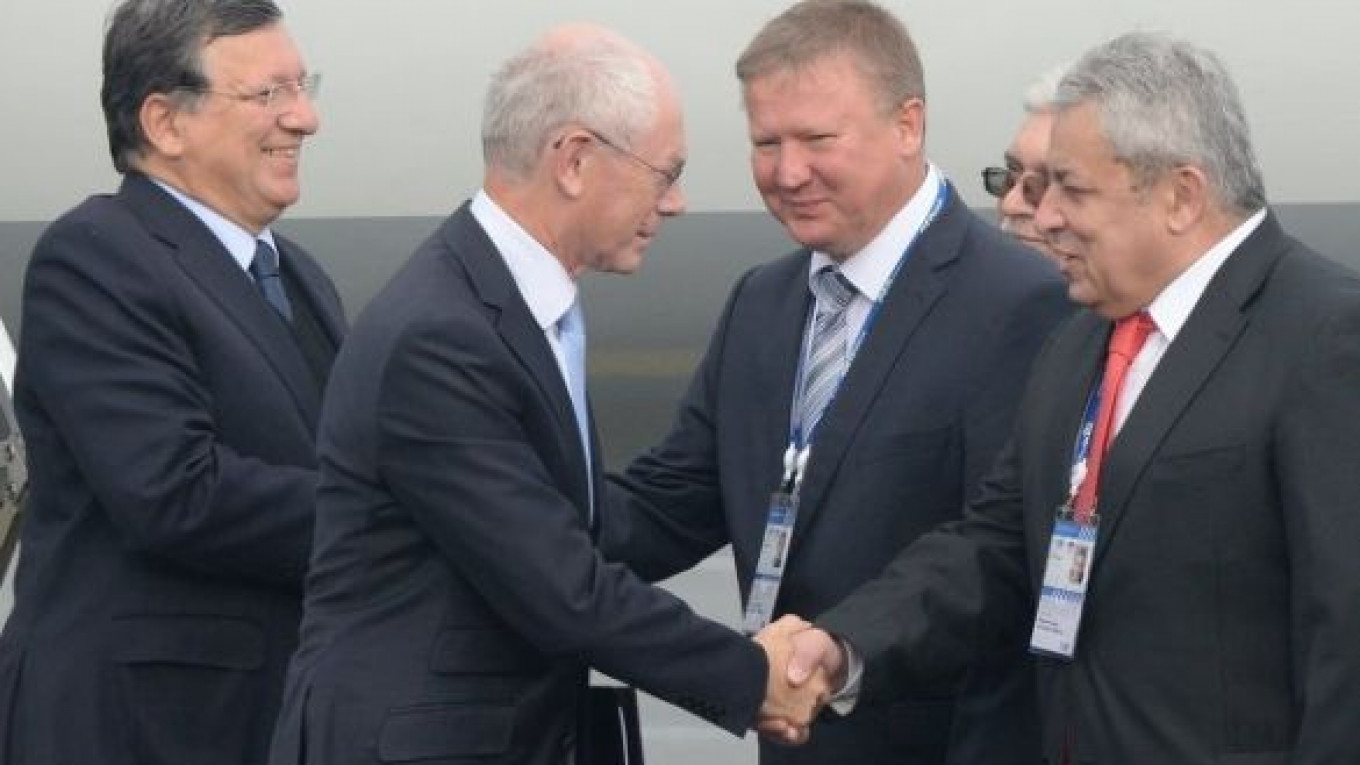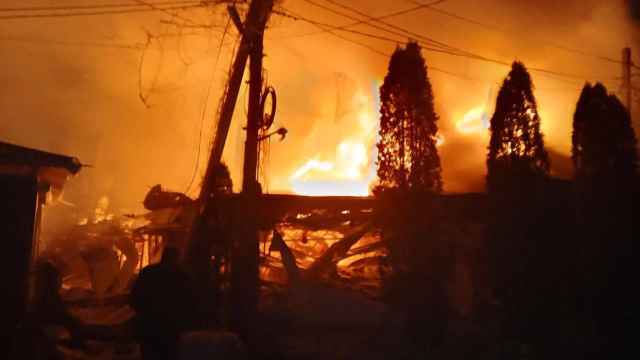ST. PETERSBURG — Speaking just hours before the formal opening of the G20 Summit, President of the European Council Herman Van Rompuy emphasized Europe and Russia's shared cultural and historic foundations as the main determinant of the current relationship between the two.
At a meeting held at the European University in St. Petersburg, Van Rompuy said Russia was a nation that was equal to Europe that belongs to "one European family."
He quoted Russian novelist Leo Tolstoy, who famously opened his Anna Karenina novel with the line: "Happy families are all alike; every unhappy family is unhappy in its own way."
Van Rompuy went on to challenge Tolstoy's statement, however, saying that in Europe, it appears, states can be happy with each other in their own way.
As for whether Russia can be considered part of Europe, Van Rompuy said the debate itself on whether Russia was European proved that it was, as "such collective self-examination is very European."
He also opened up about his own personal experience with Russian culture, noting that Tolstoy's other famous novel, War and Peace, was the book that "inspired him the most" in life.
It is because of this special heritage that ordinary Europeans share with Russians that there are very "high expectations" from Russia-EU cooperation.
A Message from The Moscow Times:
Dear readers,
We are facing unprecedented challenges. Russia's Prosecutor General's Office has designated The Moscow Times as an "undesirable" organization, criminalizing our work and putting our staff at risk of prosecution. This follows our earlier unjust labeling as a "foreign agent."
These actions are direct attempts to silence independent journalism in Russia. The authorities claim our work "discredits the decisions of the Russian leadership." We see things differently: we strive to provide accurate, unbiased reporting on Russia.
We, the journalists of The Moscow Times, refuse to be silenced. But to continue our work, we need your help.
Your support, no matter how small, makes a world of difference. If you can, please support us monthly starting from just $2. It's quick to set up, and every contribution makes a significant impact.
By supporting The Moscow Times, you're defending open, independent journalism in the face of repression. Thank you for standing with us.
Remind me later.






